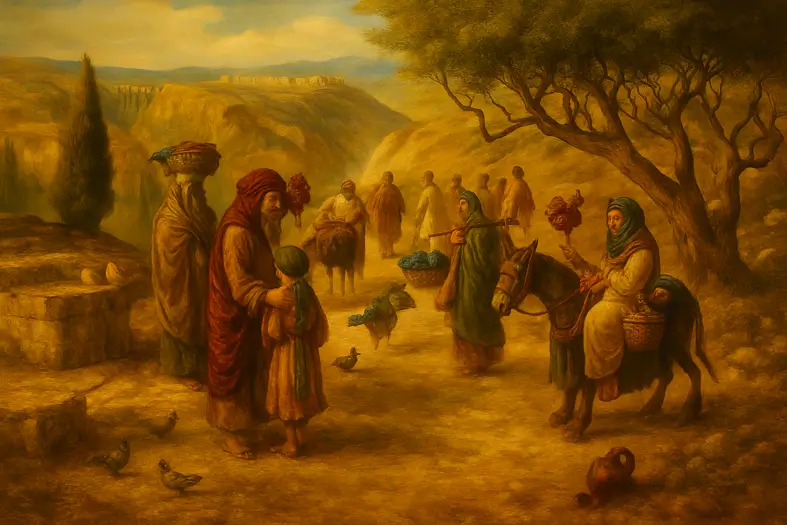


It is forbidden to entice or missionize another person to serve idols.
This mitzvah forbids the act of hesitah — enticing another to worship idols. The Torah treats the mesit with unparalleled severity because he undermines Israel’s covenant from within. Rambam (Hilchot Avodat Kochavim 5:1–4) rules that even speech that seeks to persuade another toward idolatry constitutes this transgression.
The Talmud (Sanhedrin 67a–b) states that the mesit is judged without leniency, as his actions threaten communal faith. Sefer HaChinuch (Mitzvah 462) emphasizes that missionizing attacks the very roots of emunah, corrupting individuals by exploiting bonds of trust. Rashi (Deut. 13:7) notes that the Torah highlights close relationships (“your brother, your son, your daughter, your wife, your friend”) to show that idolatry’s seduction often spreads through intimacy and loyalty. Ramban adds that the prohibition reveals the danger of persuasive speech — the Torah warns against not only the idol itself but those who entice toward it. Midrash (Sifrei Devarim 87) calls the mesit “the destroyer within,” contrasting him with external enemies like Amalek.
Commentary & Classical Explanation:
Contrast with Mitzvah 32 (Not to turn a city to idolatry):
Parallel to False Prophecy (Mitzvah 42–44):
Safeguarding Faith in the Marketplace of Ideas
Ethics in Online Influence
Protecting Vulnerable Audiences
Counteracting Missionary Activity
Digital Missionizing Awareness


Mitzvot that prohibit worship of false gods and practices associated with idol worship.
Represents Emunah—the deep, inner trust in Hashem’s presence, oneness, and constant involvement in our lives. This badge symbolizes a heartfelt connection to G-d, rooted in belief even when we cannot see. It is the emotional and spiritual core of many mitzvot.
Used for mitzvot that reflect Judaism’s foundational principles—belief in G-d, reward and punishment, prophecy, Torah from Heaven, and more. These commandments shape the lens through which all others are understood.
Pertains to the power of speech—both positive and negative—including lashon hara, vows, and blessings.
Mitzvot that strengthen communal life — showing up, participating, supporting, and belonging. Community is where holiness is shared, prayers are multiplied, and responsibility becomes collective.
Signifies awe and reverence toward Hashem—living with awareness of His greatness and presence.
Mitzvot that define and deepen the relationship between a person and their Creator. These include commandments involving belief, prayer, Shabbat, festivals, sacrifices, and personal holiness — expressions of devotion rooted in divine connection.

Dive into mitzvos, prayer, and Torah study—each section curated to help you learn, reflect, and live with intention. New insights are added regularly, creating an evolving space for spiritual growth.

Explore the 613 mitzvos and uncover the meaning behind each one. Discover practical ways to integrate them into your daily life with insights, sources, and guided reflection.

Learn the structure, depth, and spiritual intent behind Jewish prayer. Dive into morning blessings, Shema, Amidah, and more—with tools to enrich your daily connection.

Each week’s parsha offers timeless wisdom and modern relevance. Explore summaries, key themes, and mitzvah connections to deepen your understanding of the Torah cycle.